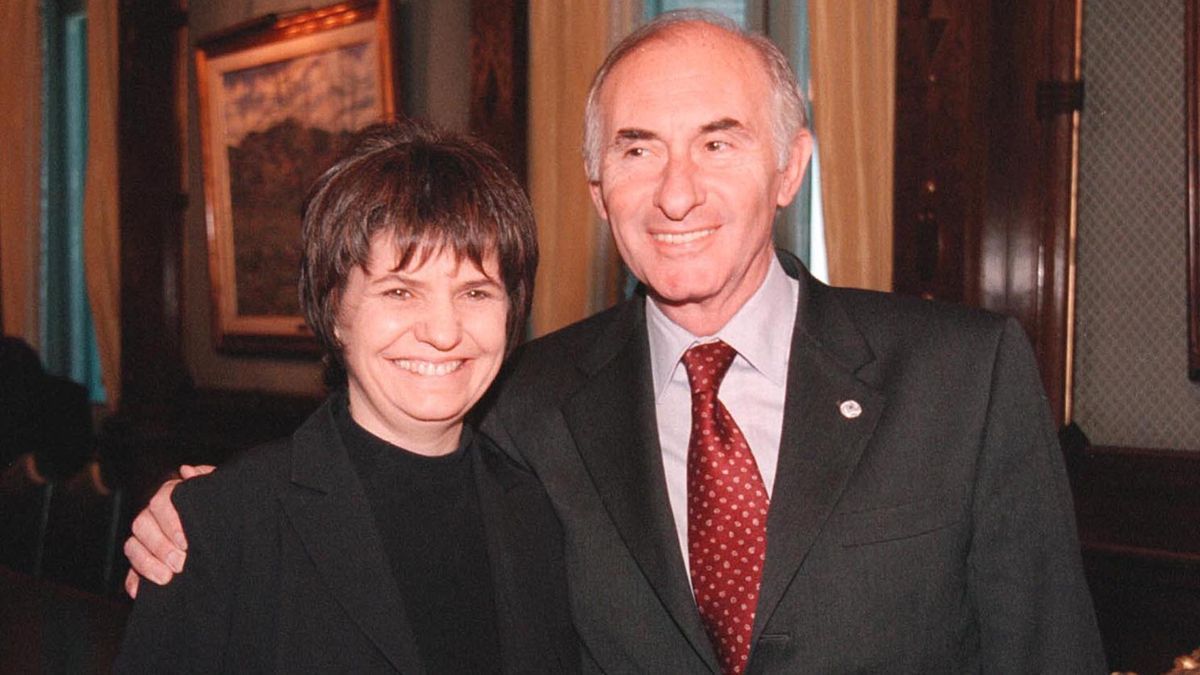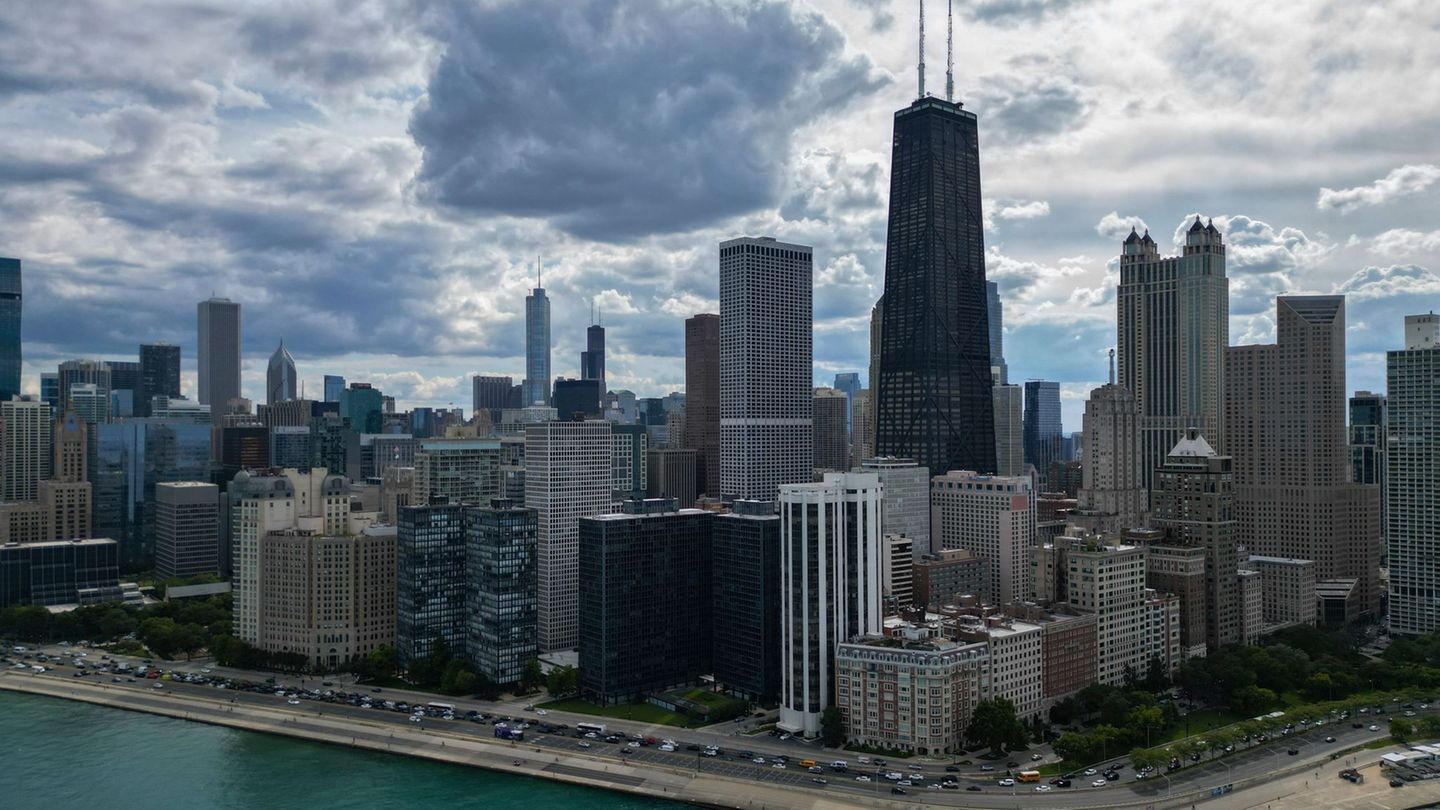According to the now famous accusation, on April 26, 2000 a Senate official, Mario pontaquarto, distributed 5 million pesos (dollars) among various senators of the justicialismo to guarantee that a controversial law is approved that eliminated labor rights. Flamarique would be finally acquitted, and since then he would dedicate himself to fruit production in Maipú, Mendoza. In his replacement the technocrat was summoned Patricia bullrich. Who came from various experiences of political participation but who was no longer enrolled in any political party of the members of the Alliance. And its incorporation did not imply broadening the party base of the government: it was added individually, with management logic.
He had already been working in the De la Rúa administration in another complicated area: Criminal Policy and Penitentiary Affairs. And he had to take over Labor at a serious time, with a failed labor reform, a broken relationship with the union organizations, and rising unemployment (during his tenure, unemployment rose from 15 to 21%). And then, when the Alliance was dying, in September 2001 the recently created Ministry of Social Security took over, to implement new painful measures. For example, within the framework of the so-called “Zero Deficit Law”, Patricia Bullrich promoted and signed the decree that established the reduction of 13% of the salaries of state workers and of pensions with amounts greater than 500 convertible pesos to dollars (plus other cuts in wages).
Bullrich approached the “Sushi Group” (Antonio De la Rúa, Darío Lopérfido, Hernán Lombardi, Cecilia Felgueras and others who approached such as Lautaro García Batallán; Darío Richarte, Andrés Delich, Ramiro Agulla, and another economist closely collaborating with Fernando de Santibañes ). Patricia Bullrich was also a close contributor to both Cavallo and Lopez Murphy in their fateful two weeks.
The relationship between Bullrich and López Murphy in the management was so close that after the collapse of De la Rúa they got together to promote a new political alliance. Bullrich had launched a foundation, Now Argentina, which was the immediate antecedent of his Unión por Todos party. And that party, created in 2003, was the instrument he used to ally himself with López Murphy to launch his candidacy for the Buenos Aires Government Headquarters that year, supported by the Recrear para el Crecimiento party of the former Minister of Defense and Economy. He faced electorally Ibarra and Macri and came in third place.
Bullrich’s career, unlike what happened with the Frepasistas and radicals who assumed political responsibility for government failure, continued. After some time of fighting alone, in 2007, her party joined the Civic Coalition front led by Elisa Carrió, and managed to be elected deputy for two consecutive terms. From her lonely bench she approached the macrismo bloc – once a staunch enemy – and in December 2015 she was appointed Minister of National Security by former President Mauricio Macri. In the last two months of delarruísta’s administration, when Bullrich was displaced from the Ministry of Labor and sent to a ministry created ad hoc to preserve her, Fernando De la Rúa called José Dumón, a non-Alphonsinist radical from Buenos Aires. According to the newspapers of the time, he selected it to “contain the labor movement” in a conflictive framework. Dumón was in office until the outbreak of December 21, 2001.
Education, like Work, was another conflictive case, since the university movement (Franja Morada) was important in delarruísta management, and the attempts at budget adjustment aroused open resistance. If the suspicion of bribery in the Senate ended abruptly with Álvarez’s Vice Presidency, we can say that attempts to adjust the Higher Education sector were key to explaining López Murphy’s downfall. The university radicalism mobilized against him synthesized the demands of the party as a whole.
Juan José Llach, sociologist and economist, was the prime minister appointed by the president, he ended up walking away due to disagreements with the president’s political line. In his replacement he summoned Hugo Juri, a surgeon who had been Dean of the Faculty of Medical Sciences and then Rector of the UNC. It was a gesture towards the university community, although he lasted a few months in office, since after the announcements of cuts to public education, the instability and the possibility that De la Rúa will present a project for the tuition of undergraduate degrees in the national universities, Minister Juri submitted his resignation. Juri returned to university life and is rector of the UNC for the period 2016-2019.
In this context, Andrés Delich, a sociologist from the University of Buenos Aires who had been Secretary General of the Purple Strip and President of the University Federation of Buenos Aires (FUBA), entered. In addition to having been, during Juri’s administration, his second in the Ministry, Delich was a figure identified with the university radicalism. Unlike Juri, a technician more identified with the management elite of national universities. Delich held office until December 21, 2001.
With his arrival at the head of the Ministry of Education, Delich had to face the political crisis that caused the cut announced by his government, which led to a total teacher strike and universities taken. Finally, he managed to mediate with teachers and students, and reach an agreement, as well as leave the cuts without effect, and deactivate the fee project that had generated the crisis.
Finally, we must mention the case of the Economy portfolio. In Argentine history, as seen in previous articles, the Ministry of Economy was the center of technocratic management. In this sense, it is necessary to analyze the way in which President De la Rúa, as the economic situation deteriorated, and his own political situation weakened, transferred more and more power to a Ministry of Economy administered by technopols. Specifying the economic-financial dominance of politics, by technocratic means. Was this inevitable, from a management point of view? No, it was an option chosen by the president, in a climate of international times that favored the empowerment of these political profiles.
During the De la Rúa government there were three holders of the economic portfolio: José Luis Machinea, Ricardo López Murphy and Domingo Cavallo. Politically backed Machinea was the incumbent during Cabinets 1 and 2, while López Murphy and Cavallo served in Cabinet 3. Machinea, with some time as a technician for the Central Bank of the military dictatorship, was remembered for his performance during the government of Raúl Alfonsín. In that management, he had held the positions of Undersecretary for Development Programming of the Planning Secretariat, then Undersecretary of Economic Policy of the Ministry of Economy and, finally, Presidency of the BCRA between August 1986 and the dramatic end of the Alfonsinist cycle in 1989. In April 1988, while Machinea was the head of the Central Bank, the country had entered into a moratorium on the payment of its foreign debt.
The end of Machinea had not been successful: Alfonsín resigned early as a consequence of the hyperinflationary process, and both Sourrouille and Machinea had been associated with that critical moment. In 1989, in February, the decision made by the Sourrouille-Machinea tandem to apply a bank holiday for 48 hours was remembered, which ended in a massive run towards the dollar. And the inflation that in the month of May reached 78.4%.
However, Machinea’s presence in De la Rúa’s cabinet made political sense. Associated with a “moderate heterodox” approach, with antecedents in government Alfonsinism, he was a figure of a consensus that included the UCR referenced in Raúl Alfonsín, the Frepaso referenced in Álvarez, and had the approval of the first Chief of Cabinet and member from Cabinet 1, Rodolfo Terragno. Machinea was the economic brain of the Alliance and was part of the founding board of the coalition that had brought De la Rúa to power. Machinea knew that in the 1995 presidential elections, which allowed Menem to be reelected, the defense of economic stability had been fundamental for the electorate. And for those reasons, despite Terragno’s dissent, he decided not to question any of the pillars of Argentine economic policy: currency convertibility, privatizations, and trade openness. He did not object to the continuity of Pedro Pou at the head of the Central Bank.
Notoriously, despite the continuities, the name of Machinea was seen as the guarantor of a greater emphasis on “social moral” issues in the management of public finances (Godio, 1998). The Alliance between the UCR and Frepaso had found in him a “progressive ideological profile to occupy the complex role of Minister of Economy and Production. However, even before the Alliance won the elections, the future minister hinted to market opinion leaders that his measures would not be as progressive as those promised in the campaign: he had been talking about fiscal adjustment, reductions in employer contributions and of certain labor flexibility measures (extension of the terms of trial work contracts, salary negotiations at the company level, minimizing the power of the unions. Their main objective was to reduce the fiscal deficit, a recurring theme in the presidential discourse of the ruísta. his appointment, Machinea attempted the reorganization of the Titanic’s chairs.
Professor of Postgraduate UBA and Master’s degrees in private universities. Master in International Economic Policy, Doctor in Political Science, author of 6 books. @PabloTigani
Source From: Ambito




